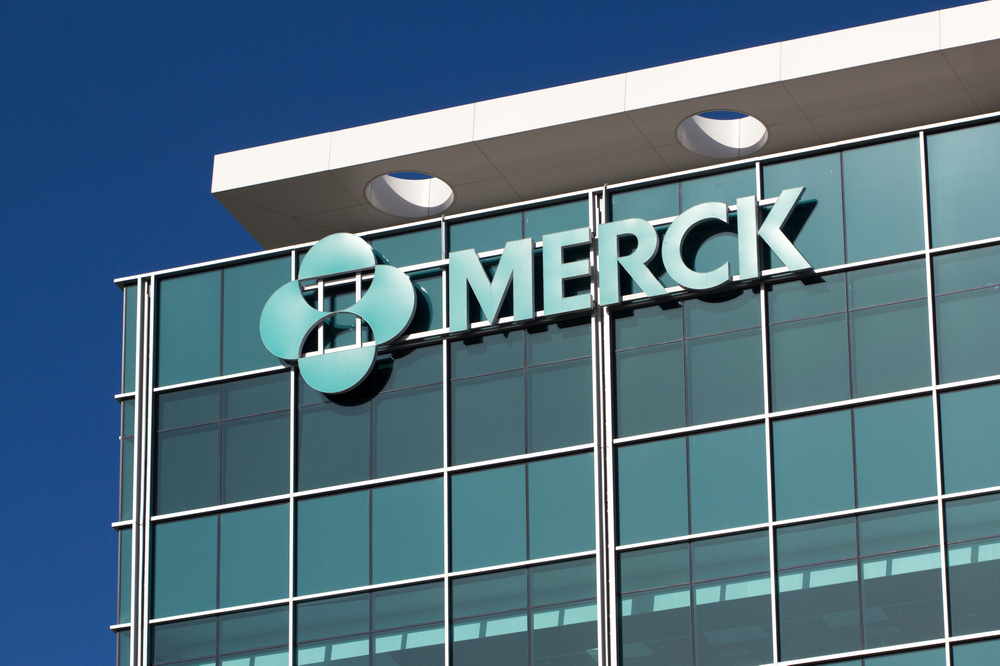
Merck announced a series of actions against COVID-19 this week, joining the fight against the global pandemic through two agreements that further potential vaccines against its viral source, SARS-CoV-2, and a research collaboration intended to create a novel antiviral candidate.
“With our singular legacy and expertise in vaccines and anti-infective medicines, we know Merck has a responsibility to engage in the scientific community’s efforts to find new medicines and vaccines to bring this pandemic to an end,” Kenneth Frazier, chairman and CEO of Merck, said. “Merck has been fully committed to developing an effective response to the COVID-19 pandemic since it was first recognized, and we know that success will require global collaboration among countries and companies and more. Today, we are proud to mark the culmination of our swift, conscientious and concerted effort to identify some of the most promising solutions to this global challenge and to put our resources to use in accelerating these efforts. We will ensure that all of these programs have the resources, attention, and focus they need – and that the COVID-19 pandemic demands.”
One of Merck’s major developments this week was the acquisition of Themis, a company focused on vaccines and immune-modulation therapies for infectious diseases and cancer. Merck will take charge of it through a subsidiary, giving it access to a sizeable pipeline of vaccine candidates and therapies developed through an innovative measles virus vector platform created in concert with scientists at Europe’s Institut Pasteur. Themis has been working since March to develop a SARS-CoV-2 vaccine candidate as part of a coalition funded by the Coalition for Epidemic Preparedness Innovations (CEPI). Themis currently has a vaccine candidate in preclinical development, with clinical studies planned for later this year.
“Building on the pioneering work of the Institut Pasteur, the Themis team has established specialized expertise that complements Merck’s own capabilities in the discovery, development, manufacturing and global distribution of vaccines,” Dr. Roger Perlmutter, president of Merck Research Laboratories, said. “We are eager to combine our strengths both to develop an effective COVID-19 vaccine in the near term and to build a pandemic preparedness capability directed toward emerging agents that pose a future epidemic threat.”
Merck’s other effort in the vaccine realm took the form of a collaboration with the nonprofit IAVI and the Biomedical Advanced Research and Development Authority (BARDA). Under the terms of their arrangement, a vaccine candidate to be designed and engineered by IAVI scientists will utilize the recombinant vesicular stomatitis virus (rVSV) technology already developed by Merck — a technology responsible for the first rVSV vaccine approved for human use. BARDA will provide initial funding for this effort.
That vaccine candidate is in preclinical development as of now, with clinical studies planned for later this year. Once it gets to that point, Merck will lead regulatory filings globally.
“We believe an rVSV-based vaccine strategy represents a promising approach to combating the novel coronavirus pandemic and look forward to implementing an accelerated development program, together with Merck, to evaluate the potential of our vaccine candidate against SARS-CoV-2,” IAVI President and CEO Mark Feinberg said. “The collaboration between Merck and IAVI represents an innovative partnership model and approach to utilize our joint capabilities in complementary and synergistic ways to address this difficult global health challenge.”
Merck’s final action in this week’s flurry of activity was to begin collaboration with Ridgeback Biotherapeutics LP for the development of novel antiviral candidate EIDD-2801. If successful, it would be an oral option for the treatment of patients with COVID-19. Currently, in early clinical development, Merck will gain exclusive worldwide rights to develop and commercialize EIDD-2801 and its related molecules through a subsidiary. Ridgeback will be compensated for the arrangement and be granted a share of the net proceeds if the product is approved. Merck will take on the burden of clinical development, regulatory filings, and manufacturing.
Perlmutter noted that the clinical evaluation of the candidate is just beginning, with phase 1 study results and preclinical studies demonstrating positive results, including potent antiviral properties against multiple coronavirus strains, SARS-CoV-2 among them.
“Since the start of the COVID-19 pandemic, we have worked closely with our network of esteemed collaborators to advance EIDD-2801 into the clinic,” Wendy Holman, CEO of Ridgeback Biotherapeutics, said. “This agreement with Merck, a leader in infectious disease therapeutics, positions us to harness the full potential of EIDD-2801 and, if approved, deliver it to the patients that need it globally.”
Merck has committed to making any vaccine or medicine it develops through arrangements like these accessible and affordable globally.
“Though the challenge of this pandemic is immense, we know that science and collaboration will triumph, just as they have before,” Frazier said. “While we cannot predict when this battle will be won, we are confident that science is on our side, that collaboration is already well underway, and that together, we will prevail.”




